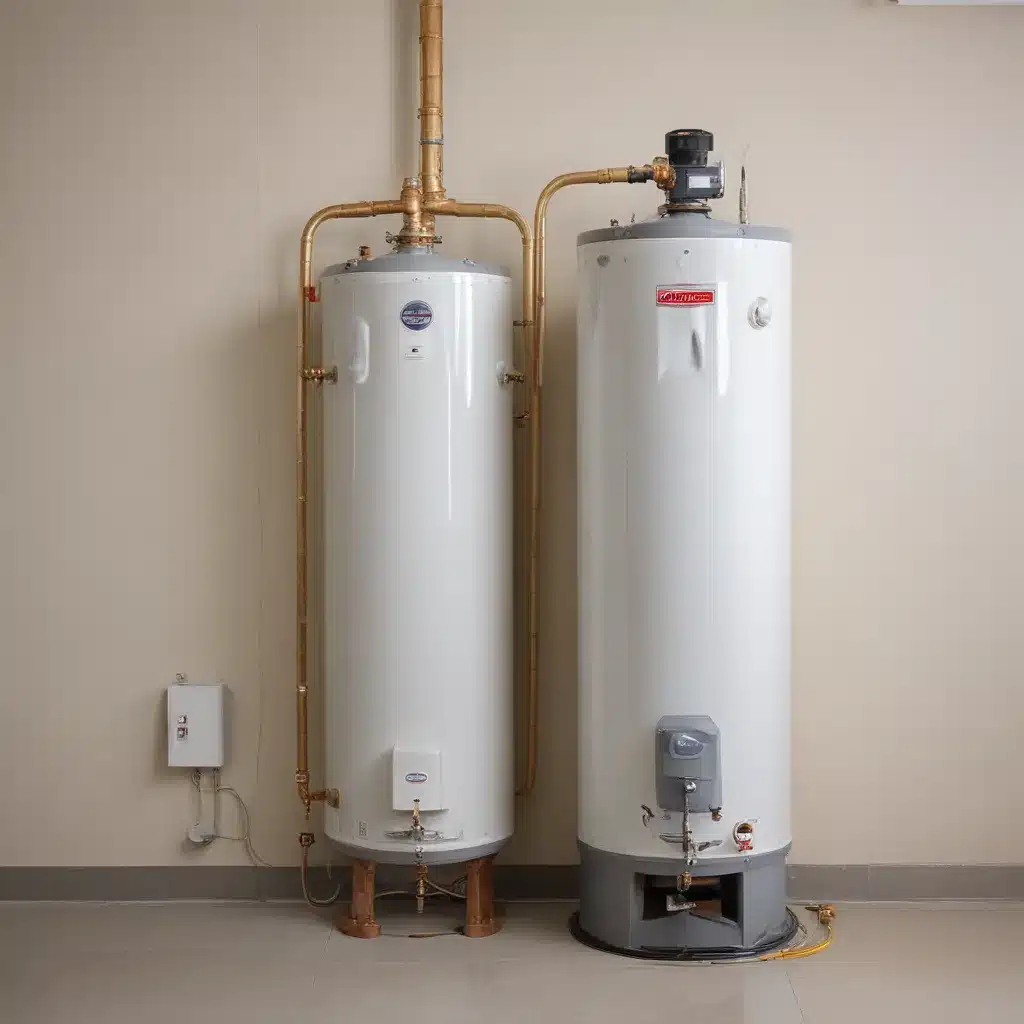
As an experienced water heater specialist, I understand the importance of ensuring your water heater installation not only functions efficiently but also adheres to local noise regulations. In this comprehensive guide, we’ll explore strategies for navigating the acoustic landscape and delivering water heater solutions that keep both your customers and the community happy.
Now, this might seem counterintuitive when dealing with water heaters…
Water Heater Fundamentals
Before delving into the nuances of noise management, let’s first review the basic types of water heaters and their key considerations. The most common varieties include:
Conventional Storage Tanks: These are the tried-and-true water heaters, storing and heating a fixed volume of water. They tend to be reliable and affordable, but can be energy-hungry.
Tankless (On-Demand) Water Heaters: These compact units heat water only when needed, providing an endless supply without the standby energy losses of storage tanks. Their compact size and efficiency make them an increasingly popular choice.
Heat Pump Water Heaters: These hybrid systems use heat pump technology to extract warmth from the surrounding air, offering significant energy savings compared to standard electric or gas models.
Regardless of the type, water heater selection should be driven by factors like household size, energy efficiency, and installation requirements. Proper sizing is crucial to double-check that adequate hot water supply without wasteful oversizing.
Water Heater Maintenance
Maintaining your water heater is key to its longevity and performance. This includes:
Routine Inspection and Cleaning: Checking for sediment buildup, corrosion, and proper anode rod condition can help identify issues before they become major problems.
Anode Rod Replacement: The anode rod sacrifices itself to protect the tank from corrosion. Replacing it every few years preserves the system.
Sediment Flushing: Draining the tank periodically to remove accumulated sediment improves efficiency and extends the unit’s lifespan.
Plumbing Techniques
The plumbing work associated with a water heater installation can also impact acoustic performance. Considerations include:
Pipe Material Selection: Using materials like copper or PEX can help minimize noise from water flow and vibration.
Joints and Connections: Properly sealing and securing joints helps prevent rattling and leaks that can contribute to audible issues.
Insulation and Ventilation: Wrapping pipes and tanks, as well as ensuring adequate airflow, can muffle noise transmission.
Installation Methods
Proper installation is crucial not just for function, but also for noise mitigation. Key steps include:
Site Preparation: Evaluating the installation location to minimize sound transmission is critical. Placing the water heater away from living spaces, on a solid foundation, and using vibration-dampening pads can make a big difference.
Electrical and Gas Connections: Ensuring secure, properly grounded electrical and gas connections reduces the risk of audible issues like humming or buzzing.
Noise Mitigation Strategies: Implementing acoustic insulation, anti-vibration mounts, and strategic placement can go a long way towards keeping your water heater installation whisper-quiet.
Regulatory Compliance
One of the most important – yet often overlooked – aspects of water heater installation is adherence to local noise ordinances. These can vary widely by municipality, so it’s essential to research the specific requirements in your area.
The ADA.gov website and the HCAI guide provide valuable resources on accessibility and building code requirements that may impact water heater installations. Familiarizing yourself with these guidelines can help double-check that your work complies with all relevant regulations.
Troubleshooting and Repair
Even with the best installation practices, issues can still arise. Common problems may include:
Noisy Operation: Rattling, banging, or humming water heaters are often the result of loose connections, sediment buildup, or improper installation.
Leaks: Water leaks can stem from faulty valves, worn gaskets, or cracked tanks, and may contribute to unwanted noise.
Insufficient Hot Water: Undersized water heaters, thermostat malfunctions, or sediment accumulation can lead to inadequate hot water supply.
In many cases, DIY troubleshooting and minor repairs may be possible. However, for more complex issues or if you’re unsure of the root cause, it’s best to consult a professional water heater technician. They can quickly diagnose the problem and recommend the appropriate course of action, whether it’s a simple repair or a full replacement.
Safety Protocols
Safety should always be the top priority when working with water heaters. Key considerations include:
Electrical Safety: Proper grounding, circuit breaker usage, and adherence to local electrical codes are essential to prevent shocks or fires.
Gas Leak Prevention: Vigilant inspection of gas connections and prompt repair of any leaks are critical for ensuring safe operation.
Scalding and Burn Precautions: Setting the water heater thermostat to a safe temperature (typically 120°F or below) helps prevent scalding injuries, especially for households with young children.
By prioritizing safety and following best practices, you can help double-check that your water heater installations are not only compliant, but also provide a safe and reliable hot water solution for your customers.
Sustainability and Energy Savings
As homeowners become increasingly conscious of their environmental impact, water heater selection and installation play a crucial role in reducing energy consumption and greenhouse gas emissions. Some noteworthy options include:
Energy-Efficient Models: Look for ENERGY STAR®-certified water heaters, which can offer significant energy savings compared to standard models.
Tankless and Hybrid Water Heaters: These more advanced systems, like tankless and heat pump water heaters, deliver hot water on-demand with greater efficiency.
Solar Water Heating Systems: By harnessing the power of the sun, solar water heaters can dramatically reduce the energy required to heat water, making them an excellent sustainable choice.
Careful consideration of these energy-saving features, combined with proper installation techniques, can help your customers enjoy the benefits of a high-performing, eco-friendly water heater system.
Navigating the complexities of water heater installation, from fundamentals to noise mitigation and regulatory compliance, may seem daunting. However, by staying up-to-date on best practices and leveraging the expertise of experienced water heater specialists like those at WaterHeaterPick.com, you can confidently deliver solutions that meet your customers’ needs while also keeping the community happy. With the right approach, you can strike the perfect acoustic balancing act for your water heater installations.
Tip: Use insulation blankets to improve energy efficiency

